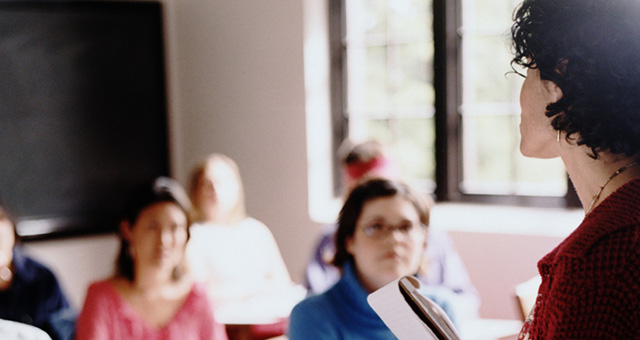In recent years, there has been more attention given to the reality that most PhD programs do not prepare future faculty for college teaching. Even when college teaching is addressed, it is frequently in the context of sharing insights in teaching subject matter from innovators in the various disciplines. So the reality persists in colleges and universities that most PhD graduates are well prepared in their (possibly narrow) subject fields but are ill prepared to teach in the college classrooms of today and tomorrow.
Today’s students are different in their preparation and motivation from the graduates of PhD programs. Students need to be motivated to learn, and teachers need to understand students and their individuality and heritage. This gap between preparation to teach and the real-life environment of classrooms on campuses needs to be bridged by effective campus-based programs focused on transitioning.
How should campuses go about creating their own transition programs. The fundamentals are constant, although some adjustments must be made for beginning faculty or faculty coming from different types of institutions to be effective teaching according to the mission of specific colleges and universities.
First, campuses must make sure that the fundamentals of teacher preparation programs at lower levels (K–12) are made a part of the transition program. This is especially the case as we learn more from brain research and neuroscience about how children and adults learn. These studies make it clear that all knowledge is constructed and based on the learner’s experiences. This means the concept of a blank slate must be rejected.
These studies also note differences in the brain development of girls and boys that affect classroom instruction. One of the most important insights of this literature is the concept and necessity of unlearning that has happened in processing information at earlier ages of the child’s development. Teachers need to actively explore their students’ misconceptions about things related to their disciplines before they can build a solid foundation for long-term learning and understanding. Any successful teacher must learn that students are culturally, socially, and experientially different in what they already know. This will affect what knowledge can be constructed on top of students’ current understandings and beliefs about facts and realities that are quite different from those of the faculty member.
Second, a new teacher must understand the concepts of motivation and acceptance. The work of Marva Collins in The Marva Collins Way (1990) provides a good source for faculty learning. It notes important realities about self-respect being central to student learning as well as immediate feedback and praise for successful learning. To reach their students, faculty must come to learn about students’ drives, motivations, and learning styles. Faculty should ensure that all parts of the curriculum reinforce and build upon previous learning. And faculty must not be hypercritical of students’ errors because excessive criticism of errors demotivates all learners.
Third, there are seven foundations of learning for effectiveness in a global society and information age. They are the following:
- All learning is based on experience.
- Learning occurs best in properly structured environments.
- Learning is most effective when it is based on experimentation and doing.
- Successful future learning depends on achieving learner engagement.
- Enthusiasm expressed by the teacher makes a profound difference in what is actually learned from covered materials.
- Human empathy and the expression of companionship in learning are vital to effective, sustainable learning.
- All students are affected profoundly by the Pygmalion effect. A lack of high expectations for every student’s learning leads to less learning for all students.
This article will continue in Part 2 on Friday, December 29.
Henry W. Smorynski is a Midland University leadership fellow.
Reprinted from “Effective Transitioning to College Teaching” in Academic leader 32.6(2016)6,7 © Magna Publications. All rights reserved.



